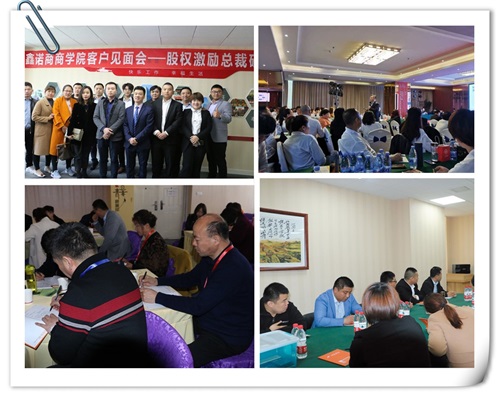

公司動態(tài)
股權(quán)激勵Equity incentive
股權(quán)架構(gòu)設(shè)計(jì)需要考慮哪些稅務(wù)問題?
發(fā)布時間:2024-07-07 來源:http://zyvd.cn/
1.持股主體的選擇:不同的持股主體(如自然人,、法人,、合伙企業(yè))會影響整體的稅收負(fù)擔(dān)和稅務(wù)處理。例如,,自然人直接持股需要繳納個人所得稅,,而通過公司或合伙企業(yè)間接持股可能會有不同的稅收優(yōu)惠政策。
1. Selection of shareholding entities: Different shareholding entities (such as natural persons, legal persons, and partnership enterprises) will affect the overall tax burden and tax treatment. For example, direct shareholding by natural persons is subject to personal income tax, while indirect shareholding through companies or partnerships may have different tax incentives.
2.稅收優(yōu)惠政策的利用:企業(yè)在設(shè)計(jì)股權(quán)架構(gòu)時,,應(yīng)充分利用國家提供的各種稅收優(yōu)惠政策,,以降低稅負(fù)。例如,,企業(yè)可以通過設(shè)立控股公司或特殊目的實(shí)體,,在不同國家和地區(qū)之間進(jìn)行稅收籌劃,利用各國稅收政策的差異來實(shí)現(xiàn)稅收的合理規(guī)避和籌劃。

2. Utilization of tax preferential policies: When designing equity structures, enterprises should fully utilize various tax preferential policies provided by the state to reduce tax burden. For example, enterprises can establish holding companies or special purpose entities to carry out tax planning between different countries and regions, utilizing the differences in tax policies among countries to achieve reasonable tax avoidance and planning.
3.股權(quán)激勵的稅務(wù)問題:股權(quán)激勵是企業(yè)常見的激勵機(jī)制之一,,但在實(shí)施過程中需要注意其稅務(wù)問題,。例如,非上市公司向激勵對象分配股息,、紅利時,,激勵對象應(yīng)就其取得的股息、紅利,,適用“利息、股息,、紅利所得”應(yīng)稅項(xiàng)目按照20%的稅率繳納個人所得稅,。
3. Tax issues related to equity incentives: Equity incentives are one of the common incentive mechanisms in enterprises, but attention should be paid to their tax issues during implementation. For example, when a non listed company distributes dividends and bonuses to its incentive recipients, the incentive recipients should pay personal income tax at a rate of 20% on the taxable items of "interest, dividend, and bonus income" based on the dividends and bonuses they have obtained.
4.股權(quán)轉(zhuǎn)讓的稅務(wù)處理:企業(yè)在進(jìn)行股權(quán)轉(zhuǎn)讓時,需要了解相關(guān)的稅收政策,。例如,,企業(yè)轉(zhuǎn)讓股權(quán)取得的收入應(yīng)作為企業(yè)的收入總額計(jì)算應(yīng)納稅所得額,并且在某些情況下可以享受遞延納稅優(yōu)惠政策,。
4. Tax treatment for equity transfer: Enterprises need to understand relevant tax policies when transferring equity. For example, the income obtained from the transfer of equity by a company should be calculated as the total taxable income of the company, and in some cases, it can enjoy deferred tax benefits.
5.分紅的稅務(wù)處理:企業(yè)在進(jìn)行分紅時,,需要注意分紅的稅務(wù)處理。例如,,境內(nèi)法人股東取得的分紅免征企業(yè)所得稅,,而自然人股東從持股的核心公司分回的權(quán)益性投資收益則需要繳納個人所得稅。
5. Tax treatment of dividends: When enterprises distribute dividends, they need to pay attention to the tax treatment of dividends. For example, the dividends obtained by domestic corporate shareholders are exempt from corporate income tax, while the equity investment income received by natural person shareholders from the core company they hold shares in is subject to personal income tax.
6.跨境投資的稅務(wù)問題:對于跨國投資的企業(yè),,需要特別注意跨境投資的稅務(wù)問題,。例如,中國企業(yè)直接投資美國時,,可能面臨較高的股息稅率,,但可以通過合理的股權(quán)架構(gòu)規(guī)劃來降低稅收風(fēng)險。
6. Tax issues related to cross-border investment: For multinational investment enterprises, special attention should be paid to the tax issues related to cross-border investment. For example, when Chinese companies directly invest in the United States, they may face higher dividend tax rates, but tax risks can be reduced through reasonable equity structure planning.
7.合伙企業(yè)的稅務(wù)問題:合伙企業(yè)在進(jìn)行股權(quán)轉(zhuǎn)讓和股息紅利分配時,,需要按照規(guī)定計(jì)算并繳納個人所得稅,。例如,個人獨(dú)資企業(yè)和合伙企業(yè)的投資者每一納稅年度的收入總額減除成本,、費(fèi)用以及損失后的余額,,作為投資者個人的生產(chǎn)經(jīng)營所得,依法征收個人所得稅,。
7. Tax issues of partnership enterprises: When transferring equity and distributing dividends, partnership enterprises need to calculate and pay personal income tax in accordance with regulations. For example, the total income of investors in sole proprietorship and partnership enterprises in each tax year, after deducting costs, expenses, and losses, shall be used as their personal production and operation income and subject to personal income tax in accordance with the law.
企業(yè)在設(shè)計(jì)股權(quán)架構(gòu)時,,需要綜合考慮上述稅務(wù)問題,以確保在合法合規(guī)的前提下實(shí)現(xiàn)有效的稅務(wù)籌劃和節(jié)稅目的,。
When designing equity structures, enterprises need to comprehensively consider the above-mentioned tax issues to ensure effective tax planning and tax savings under the premise of legality and compliance.
本文由山東股權(quán)設(shè)計(jì)友情奉獻(xiàn).更多有關(guān)的知識請點(diǎn)擊:http://zyvd.cn真誠的態(tài)度.為您提供為全面的服務(wù).更多有關(guān)的知識我們將會陸續(xù)向大家奉獻(xiàn).敬請期待.
This article is dedicated by Shandong Equity Design. For more information, please click: http://zyvd.cn Sincere attitude. We will provide you with comprehensive service. We will gradually contribute more relevant knowledge to everyone. Stay tuned
上一篇:股權(quán)架構(gòu)設(shè)計(jì)為什么要找股權(quán)律師設(shè)計(jì)?
下一篇:創(chuàng)始人如何通過股權(quán)架構(gòu)設(shè)計(jì),,守住公司的控制權(quán)?
本站聲明
本網(wǎng)站為非營利性網(wǎng)站,,旨在宣揚(yáng)股權(quán)知識,,交流職業(yè)學(xué)習(xí)心得。網(wǎng)站內(nèi)部分文章來自其它網(wǎng)站,,只做交流學(xué)習(xí)之用,。相應(yīng)的權(quán)力均屬于原權(quán) 力人,如權(quán)利人認(rèn)為不妥,,請來電來函說明,,本網(wǎng)站隨既停止或使用,謝謝合作,! 13698613138
13698613138
微信公眾號

掃碼獲知更多知識

抖音二維碼
山東股章企業(yè)管理顧問有限公司 備案號:魯ICP備19050574號-2 網(wǎng)站建設(shè)·推廣運(yùn)營 網(wǎng)站地圖 XML TXT

截屏,,微信識別二維碼